This Demitrius Saturday corresponds with the commemoration day of Holy Hiero-Confessor Athanasius (Sakharov), who was father-confessor for many years to the author of this homily, Archimandrite Kirill (Pavlov). Truly these spiritual giants of the twentieth century are now delighting in the endless life together in God's mansions.
* * *
Thou only Creator Who with wisdom profound mercifully orderest all things, and givest unto all that which is useful, give rest, O Lord, to the soul of Thy servant who has fallen asleep, for he has placed his trust in Thee, our Maker and Fashioner and our God
Panikhida Troparion, Tone 8
Beloved in the Lord brothers and sisters, our holy Mother Church, which loves her children, has gathered us today on this memorial feast, known as St. Demetrius Saturday, that each of us, according to his measure of zeal, according to the measure of his love for our departed friends and relatives, with a living and undoubting faith in their continuing life beyond the grave, would bring his fervent prayer for their repose, that our prayers would merge into one common prayer, that with one mouth and one heart we would beseech the merciful Lord for mercy for our departed and for their entrance into a place of light, a place of verdure, and a place of repose. We are assured by the characteristic instance, besides other examples, described in the life of St. Macarius the Great, of how necessary and important are prayers for the reposed.
One day, St. Macarius, walking through the desert, found a dried-up skull on the ground. Turning it over with his staff, he noted that the skull made a sound.
“Whose are you, skull?” the holy elder asked.
“I was the head of all the pagan priests living here,” the voice from the skull said. “And you, Abba Macarius, are full of the Spirit of God. When you pray for us, who exist in torment, we experience some consolation.”
“What consolation do you experience, and what torment?” the saint asked the skull.
“As far as Heaven is from Earth, so great is the fire in which we suffer, scorched on all sides, from head to toe,” the voice uttered with lamentation, “and we cannot even see one another. When you pray for us, then we see one another somewhat, and it brings us some bit of consolation.”
The saint wept and said, “How miserable the day when man broke the commandment of God.”
Then he asked, “Are there other, greater torments?”
He heard the answer: “There are other people who are located under us, deeper. We, who did not know God, have some consolations from the mercy of God, but those, who, having known God, rejected Him and did not keep His commandments, experience grave, unspeakable torments.”
After these words, St. Macarius buried the skull in the ground and began to contemplate deeply.
You have heard, my dears, that the prayer of the saint brought a certain consolation even to pagans; all the more does the prayer of the Church bring comfort and render its blessed influence on the souls of reposed Christians, for whom it offers the Golgotha sacrifice, whom the Lord redeemed by His priceless Divine Blood. Pray, my dears, for the reposed with fervor and with love, and remember them with a kind word. Remember their good deeds, their labors, their good qualities, and finally, remember that we have a common lot, one and the same path, and let this memory motivate us to pray for the reposed with love and zeal.
Love, which our Lord Jesus Christ commanded us, must extend not only to the living, but also to those of our friends and relatives who have departed from us. Our love should be even greater for the reposed, because our living loved ones can help themselves with repentance or good works and thus alleviate their portion, but the departed cannot in any way help themselves, and all their hope for alleviation of their lot in the afterlife is on the remaining living members of the Church. We must sympathize with them, especially since we do not know their fate. After all, most people die with sins. It is a faithful saying that we are born in sins and in sins we conduct our lives, and although we repent and commune, nevertheless, we sin again, so that death always finds us in sins. And if so, then think of how we must take care for mercy for our departed ones and pray for them! If the door to eternity, where their souls are located, suddenly opened, then before us would stand the touching picture of the silent pleas of our blood brothers, beseeching our prayers for them—and what a soul that would not shudder at the site of these millions of souls crying for help! For the fate of the reposed is like a man who swims in very dangerous places. Our prayers are like a lifesaver that we throw to our neighbor in a difficult moment. Therefore, how good it will be for that person who fulfilled his Christian duty and prayed when we all will meet there beyond the grave, seeing one another face-to-face, and he will hear gratitude from his fellow man for helping them! And conversely, how bitter will be the reproach of those who did not help their friends and relatives by their prayers in perilous times!
One Athonite schemamonk really loved to pray for the departed. Once, during prayer, he suddenly fell into a state of semi-consciousness and was overtaken by a somnolent state. He saw himself amidst a beautiful meadow in which were growing a multitude of wonderful flowers, and up ahead before him was spread the most amazing garden with many fragrant trees. The elder admired this paradisaical garden for a long time. Then he turned to the right and saw beautiful little white homes, and near one of them—his old acquaintance who had died not long before and for whom he was praying. The schemamonk approached him, kissed him, and asked, “How do you live here?”
“Well,” he answered. “By the grace of God, I find myself amidst this beautiful place.”
“And do you know that I pray for you?” the elder asked him.
“How could I not know? Everyone knows and thanks you for it. When you remember us at proskomidia or Divine Liturgy, then it is a spiritual feast for us here.”
So, you see, my dears, that our departed ones know and hear everything, and we must undoubtingly believe that communion between the living and the dead is not terminated by death, but it exists. Death, as such, does not. Man is separated from his body only for a time, leaving this visible world and translating to another, unseen by us. The Savior says, For he is not a God of the dead, but of the living: for all live unto him (Lk. 20:38). There have been cases when the reposed, by the will of God, have appeared to the living to witness to them of their new lives, or to inspire them to pray, or to warn of some danger, thus showing them the immortality of the human soul.
According to the testimony of all the Holy Fathers, the most powerful means of alleviating the fate of the reposed is to offer the Bloodless Sacrifice, but since not everyone has the chance to be present at the Divine Liturgy, we must not neglect our private, home prayer. You can pray for the reposed in the morning and evening at home, and on the road, and at work—at all times and in all places, and God receives such prayer if it comes from a pure, loving heart and is united with living faith in the Lord Jesus Christ. We cannot pray for those whom we know died in obstinate unbelief, who mocked Christian truth during their lives and departed for the other world without any signs of repentance. Such a man is a blasphemer of the Holy Spirit, and his sin will not be forgiven, neither in this world nor in the next (cf. Mt. 12:31-32). But we must pray for those who died in faith and with repentance, and we can be safely assured that our prayers will ease their lot.
Therefore, dear brothers and sisters, let us pray today for our reposed relative and generally for all departed Orthodox Christians. May our hearts, imbued with a sense of love and gratitude to the departed, unite now into a single, common prayerful cry to God to pardon them, for the forgiveness of their sins, voluntary and involuntary, and for their placement in the mansions of the righteous. With the saints give rest, O Christ, to the souls of Thy servants, where sickness and sorrow are no more, neither sighing, but life everlasting!
Amen.
1963

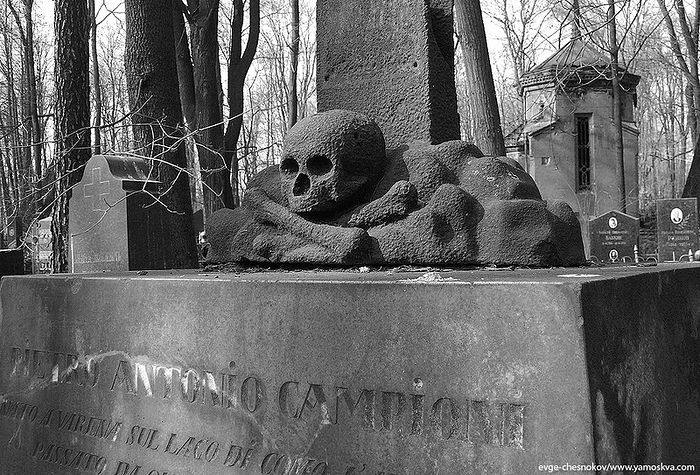
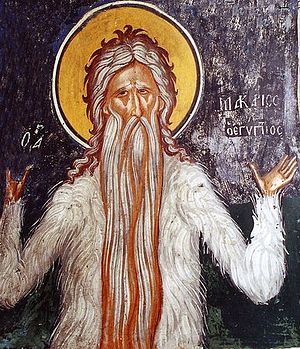
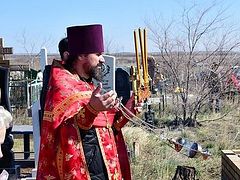
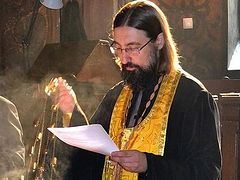
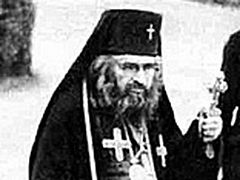
"We cannot pray only for those whom we know died in obstinate unbelief, having mocked Christian truth during their lives and having departed for the other world without any signs of repentance."
"we cannot pray only for those" seems to say that we should pray for those who died in unbelief and also those who died within the faith. But the following sentence appears to say the opposite "that they will not be forgiven etc."
This contradicts the story of St. Marcarius and the pagan's skull, aided by Orthodox prayers although dying as an idolater.
Should we pray for the non-Orthodox dead or not?
Likewise Geronda Joseph the Hesychast said that souls can be saved, even through individual prayer. He'd initially thought it was only through the Liturgy, but then had a vision that showed him that anyone who sacrifices himself for the love of others through prayer can save souls.